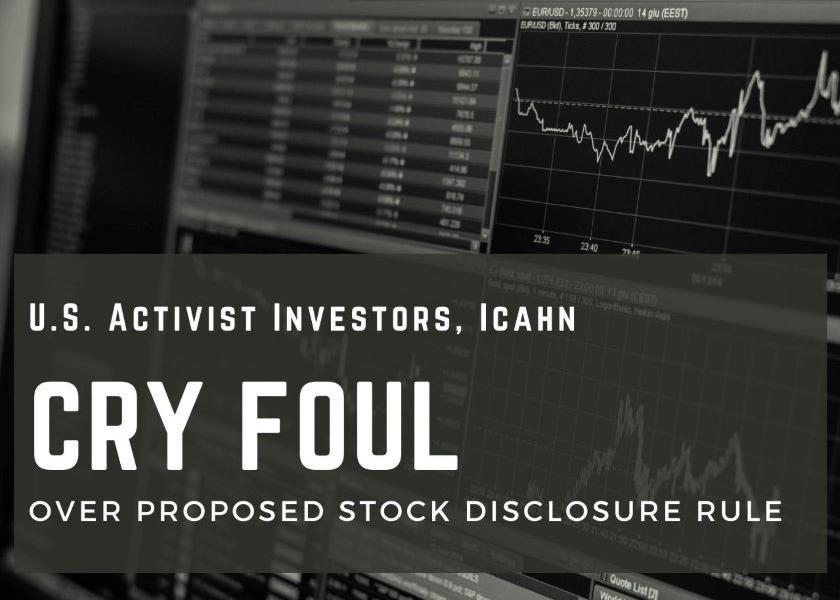U.S. Activist Investors, Icahn Cry Foul Over Proposed Stock Disclosure Rule

By Svea Herbst-Bayliss and Katanga Johnson
Activist investors including Carl Icahn say a U.S. proposal that would require them to disclose 5% stakes in companies days sooner than current rules could make it unprofitable for them to build the large positions they need for successful campaigns.
The Securities and Exchange Commission (SEC) proposed the new rule last month in a push to reduce the information advantages that the $18 trillion private funds industry has over retail investors.
The rule would halve to five days the time investors have to disclose when they have bought at least 5% of a public company. That news often causes the stock to jump as activists like Icahn, Starboard Value and Elliott Management announce they will leverage the stake to push for changes, like selling businesses or adding board members.
Because activists spend millions of dollars on research and legal fees, they say they often need 7% to 9% of a target's stock to make campaigns viable. With the shorter reporting window, accumulating that many shares could be too costly to be profitable.
The long-term impact of the SEC proposal, activists said, would be to reduce the number of such campaigns, weakening an important force for holding companies accountable to shareholders and making the best use of their capital, which benefits all investors.
"This is a sad day for many American businesses, which need to replace incompetent chief executives rather than entrench them," said Icahn, one of the industry's most successful activist investors with a net worth of more than $16 billion.
Icahn, 86, has waged battles at corporate giants from Apple to Occidental Petroleum and has recently taken on McDonald's over how it sources pork and the treatment of pigs. Since 2011, he has invested his own personal fortune.
While Icahn said the rule won't hurt him much because he doesn't need outside money, its potential to dampen returns will be painful for activists who must court outside investors.
The rule is subject to consultation and could come into effect later in the year if finalized by SEC commissioners.
"This is a step backwards for shareholder governance without any discernible benefit to the market," said one prominent activist hedge fund manager.
SEC chair Gary Gensler, though, said activists currently have too long to benefit from material non-public information.
Other investors should know sooner when an activist has targeted a company, especially since the evidence on whether activists create long-term value is inconclusive, critics said.
Ty Gellasch, head of Washington-based group Healthy Markets, said activists do play a "critical" role in pushing for change but was skeptical the rule would seriously harm them.
Likewise, Jim Rossman who defends corporations against activists as co-head of capital markets advisory at Lazard, said the 5% hurdle is not "magic." "Good ideas are valuable in themselves even if an activist owns a smaller stake," he said.
WRONG MESSAGE?
Still, other investors said the proposal sends the wrong message. As passive index-tracking has allowed most investors to disengage from corporate boards, the market needs more investors willing to spend the time and money ferreting out information and identifying undervalued companies.
With just $195 billion in assets, according to research firm Insightia, activists are already a tiny fraction of the market.
"Fewer investors than ever are actually doing the work of analyzing companies and holding underperforming boards and CEOs accountable," said Rob Collins, executive director of the Council for Investor Rights and Corporate Accountability.
"The SEC should be encouraging engaged shareholders to use their rights and their voices to push for value-creative change, not making their jobs more difficult."
(Reporting by Katanga Johnson in Washington and Svea Herbst-Bayliss in Boston; Editing by Michelle Price and Cynthia Osterman)
Read More:
Icahn Nominates Two Members to McDonald's Board to Challenge Pig Policy
Billionaire Investor Threatens Proxy Fight Over McDonald's Board Seat







